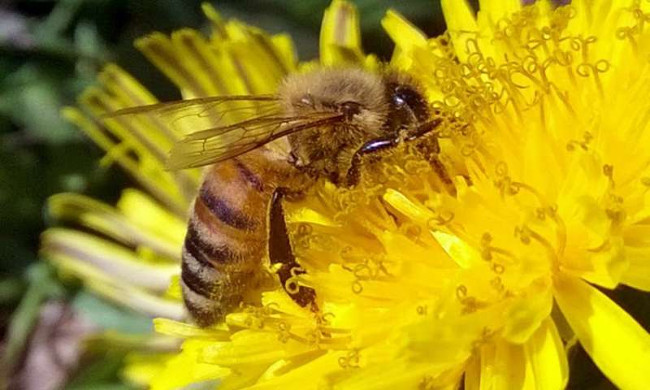Insecticides harm the honey bee life
The combined effect of pesticides and nutrient deficiencies creates dangerous effects on the ecosystem, new research by biologists at the University of California San Diego said.
In a study published in the Journal of the Royal B Association , Simone Tosi, James Nieh and their colleagues used honey bees as a "biological indicator" of environmental quality. Researchers have studied how honeybees are exposed to neonicotinoid pesticides that are widely used in agriculture along with limited nutrition, scenarios commonly found in agricultural areas.

Scientists have studied two common neonicotinoid insecticides: clothianidin and thiamethoxam, which are used worldwide in vegetables, fruits and cereals. However, after pesticides sprayed on crops, the drug remains in the environment and can be found in nectar, pollen, water and soil.
The researchers were surprised to find that the bee's mortality rate increased to 50% more than the individual effects of pesticides and poor nutrition. Surprisingly, no previous studies have mentioned this dangerous correlation.
"We tested the effects of different neonicotinoid pesticides due to growing concern and evidence of the negative impact of pesticides on bee pollination," said Tosi, a researcher. Save the post-doctoral degree at UC San Diego's Department of Biological Sciences.
The decline in honey bee health has caused global concern due to the important ecological role of bees as a major pollinator. Bee health has been closely monitored in recent years because the available nutrients in honey have decreased and pesticide pollution has increased.
In animal model studies, researchers found that synthetic exposure to poor pesticides and nutrients in nature reduced bee health. Bees use honey sugar as energy to fly and build nests. Pesticides reduce blood sugar in the bee body and thus reduce pollination efficiency, produce bile.
Tosi said: "These findings make us rethink the risk assessment of pesticide use with bee life."
You should read it
- ★ What happens if you mix honey with cinnamon powder every day?
- ★ How to heal wounds quickly and effectively with honey
- ★ What is the effect of honey pickled garlic? How to soak garlic with honey
- ★ How to soak and preserve ginseng with standard honey at home
- ★ The mystery of how people and birds communicate